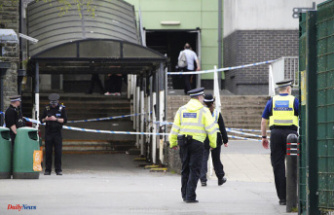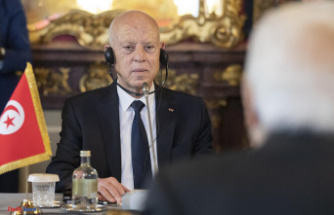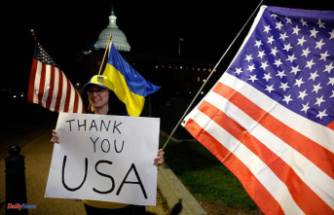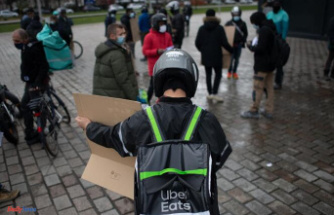The attack was not immediately blamed by any group, rendering useless government-issued electronic card that many Iranians used to purchase subsidized fuel at pump stations.
It was reminiscent of an attack that occurred months before. This attack seemed to directly challenge Iran’s Supreme Leader Ayatollah Al Khamenei, as the country's economy collapses under American sanctions. These economic problems are worsening as Iran and the U.S. continue to refuse to re-enter Tehran’s broken nuclear agreement with world powers.
The cyberattack was acknowledged by an unnamed official of the country's National Security Council, hours after images were broadcast of long lines of cars waiting in Tehran to fill up. Associated Press journalists saw lines of cars at Tehran gasoline stations with the pumps off, and the station closed.
Farzin, a motorcyclist, said that he had been waiting for gas stations to reopen for a few hours so that he could fill up. "There is no fuel anywhere I go."
Semiofficial ISNA news agency first called it a cyberattack. It said that those who tried to purchase fuel with a government-issued card instead received a message saying "cyberattack 644111." Many Iranians depend on these subsidies to fuel their cars, especially in light of the country's economic woes.
Although ISNA did not acknowledge the significance of this number, it is associated with Khamenei’s hotline that answers questions about Islamic law. ISNA later deleted its reports, claiming it had also been hacked. These hacking claims can quickly be made when Iranian media outlets publish information that is offensive to the regime.
Farsi-language satellite TV channels published videos that were apparently taken by drivers in Isfahan (a major Iranian city) and showing electronic billboards reading: "Khamenei!" One said, "Where is our gas?" Another added: "Free gas at Jamaran gas station," in reference to the residence of the late Supreme Leader Ayatollah Ruhollah Khomeini.
State TV reported that officials from the Oil Ministry were holding an emergency meeting to resolve the problem. Some stations, which accept cash only and are not part of the subsidy card network, continued to pump fuel.
The number "64411", which was used in the attack on Iran's railway system, was also displayed. Check Point, an Israeli cybersecurity firm, later identified the attackers as Indra, a Hindu god of war.
Indra had previously targeted companies in Syria, where President Bashar al-Assad has remained in power through Iran's intervention during the country's ongoing war.
Iran is home to the fourth-largest oil reserves in the world, despite decades of economic turmoil. Cheap gasoline is considered a birthright.
Iranian motorists can purchase regular gasoline at 15,000 Rial per liter through subsidies. This is 5 cents per liter or 20 cents per gallon. It costs 30,000 rials per liter after a 60-liter monthly quota. This is a total of 10 cents per liter and 41 cents per gallon. AAA reports that regular gasoline costs 89c per liter, or $3.38 per gallon in the U.S.
Iran was the target of protests in hundreds of cities and towns because of rising gasoline prices. Amnesty International stated that 304 people were killed by a government crackdown and thousands were arrested by security forces. Tuesday's cyberattack occurred in the same Persian calendar month as the 2019 gasoline protests.
It also happened on Shah Mohammad Reza Pahlavi's birthday. He was a cancer patient and fled the country just before the Islamic Revolution in 1979.
Iran has been the victim of a number of cyberattacks. One of these attacks leaked video from Iran's notorious Evin prison, in August.
After the Stuxnet computer virus, widely believed to have been a joint U.S./Israeli creation, disrupted thousands Iranian centrifuges at the country's nuclear sites in late 2000s, the country disconnected large parts of its government infrastructure.












